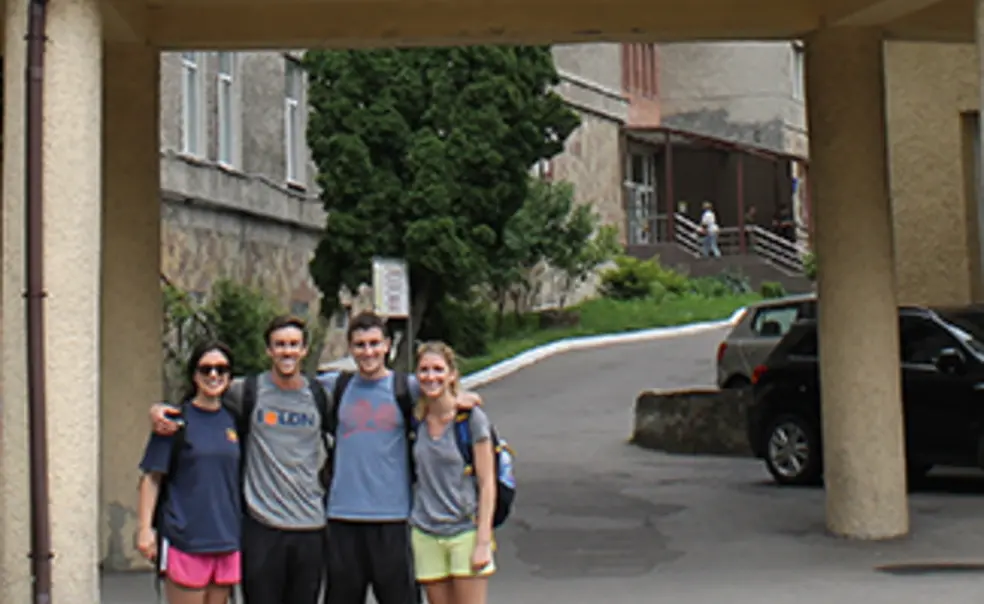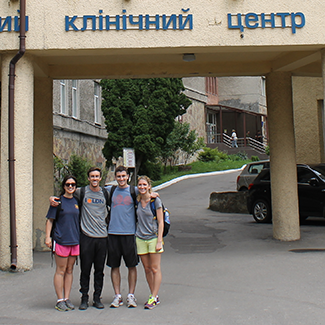Service Abroad: O’Connell ’14 Volunteers in Ukraine
D
Earlier this month, OâConnell found his service niche in Lviv, a city in western Ukraine, where he and a group of friends volunteered at three local hospitals. The recent college grads rewrapped bedsores, shadowed surgeons, and assisted injured veterans. OâConnell, who is half Ukrainian, grew up in Connecticut and studied Ukranian history, culture, and grammar at weekend classes in New York City. He majored in sociology at Princeton and began working at a tech startup in January. But he also has an interest in health care and public health, which made the volunteer trip an ideal opportunity. The last year and half has been particularly difficult for the people of Ukraine, and though Lviv is geographically removed from the countryâs conflict with Russian separatists, the fighting remains on the minds of its residents. âThe entire country is under duress â politically, economically, and socially,â OâConnell said. OâConnellâs friends, who are also Ukranian-American, spent three weeks volunteering. Due to his work schedule, OâConnell was only able to take part for one week. In that time, he spent time in three very different hospitals: Metropolitan Andrey Sheptytsky Hospital, where he tended to patients in a palliative care facility;Â Lviv Regional Clinical Hospital, where he had a close-up view of surgical procedures; and the Military Medical Clinical Center of the Western Region, where he met soldiers who have returned from the front lines with missing limbs or brain injuries â âdefinitely a sobering experience,â he said. In addition to providing emotional support, OâConnellâs group raised money through a crowd-funding campaign in advance of the trip. The money was used to purchase much-needed supplies, including a sternal saw for open-heart surgery. Each night, the volunteers debriefed and talked about what else they could do to help the doctors, nurses, administrators, and patients theyâd met. âI felt exceptionally grateful to have the opportunity to go,â OâConnell said. âI think my friends and I really viewed this as the beginning of a relationship.â












No responses yet